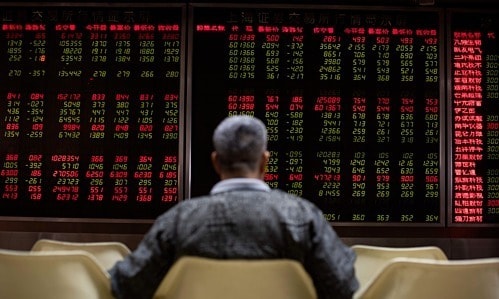Global finance is shaken by the Wuhan pneumonia epidemic
If the death toll from pneumonia increases and the epidemic spreads, analysts predict that financial markets will continue to decline.
If the death toll from pneumonia increases and the epidemic spreads, analysts predict that financial markets will continue to decline.
Hong Kong's Hang Seng Index, already weighed down by the US-China trade war, was the biggest loser this week, down 3.8%, followed by China's CSI 300, down 3.5%. Stock markets in Japan, South Korea, Singapore and Thailand, all of which have reported cases of the virus, also fell.
In the US, major indexes all fell sharply in Friday trading after health officials reported a second case of coronavirus.
 |
| Illustration photo |
Concerns about the economic impact of the epidemic have negatively affected Wall Street, with the Dow Jones Industrial Average, S&P 500 and Nasdaq Composite all recording their first weekly declines in 2020. The Dow Jones and S&P 500 fell at least 1%, while the Nasdaq Composite lost 0.8%. Earlier, in the last trading session of the week, all three major US stock indexes fell.
The CBOE Volatility Index (VIX), a measure of market fear, rose above 15 for the first time since December 2019 on Friday.
Airlines and luxury goods stocks were under pressure. Many airlines fell sharply. Asian companies that make rubber gloves and medical equipment traded higher.
“The speed at which this virus is spreading is significant and this has had a direct impact on retail and travel stocks,” said Andrew Sullivan, head of brokerage Pearl Bridge Partners. “We expect the negative impact to continue.”
Also negatively affected with stocks is oil prices.Brent crude oil prices on the London exchange fell nearly 6% for the week, to $60.90 a barrel late on Friday - the lowest level since early December - as analysts pointed to the new pneumonia epidemic as the cause of the sell-off.
"When cities are quarantined and public transport is closed, it means economic activity is reduced, negatively affecting energy demand. Until there is evidence that the outbreak is contained and economic stagnation is no longer, the sentiment towards oil will improve, bringing prices back up," said John Freeman, an analyst at Raymond James.
Not only oil and stocks, the yuan is also negatively affected.China's currency has fallen more than 1% over the past week, to 6.9 yuan per US dollar.
China will face slower economic growth than before the outbreak and the yuan could come under more pressure if the virus outbreak hits businesses, travel and consumer spending, economists say.
“The bad news is that the worst is yet to come, as the number of new cases is still rising,” said Larry Hu, chief China economist at Macquarie Capital. Ken Cheung, Asia foreign exchange strategist at Mizuho Bank in Hong Kong, said some investors who profited from the yuan’s rise had closed their positions before the Lunar New Year holiday. “They were wary of the escalation of the pneumonia outbreak,” he said.
